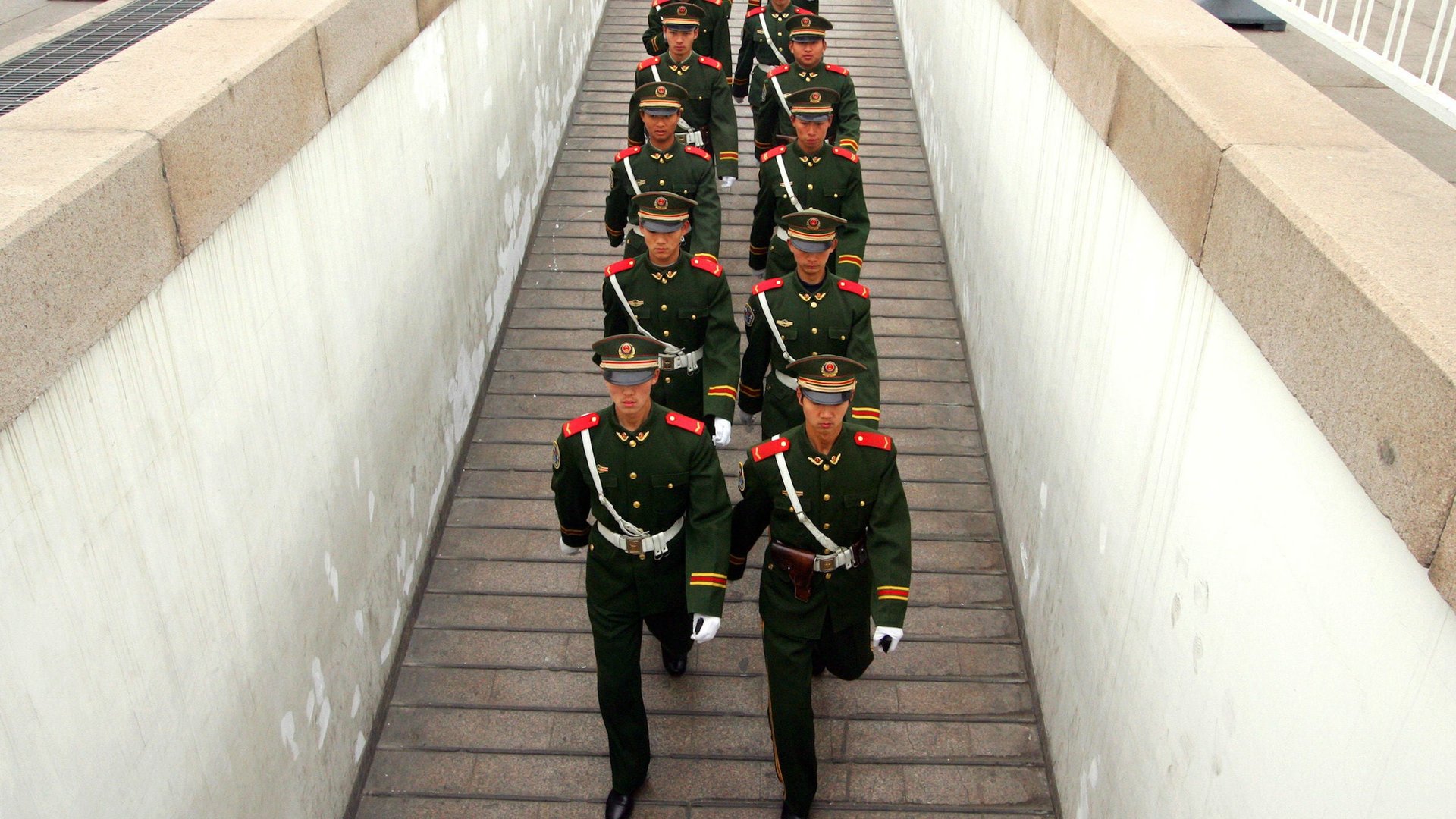GlaxoSmithKline’s bribery scandal in China might actually be about shutting up political reformers
One of the questions surrounding pharmaceutical giant GlaxoSmithKline’s (GSK) deepening corruption scandal in China is whether the firm is being unfairly singled out. Bribery is incredibly rampant in China’s healthcare industry, and industry observers have noted that GSK’s behavior— funneling up to 3 billion renminbi (about $489 million) in bribes to doctors and officials—is not much more grievous than the norm.


One of the questions surrounding pharmaceutical giant GlaxoSmithKline’s (GSK) deepening corruption scandal in China is whether the firm is being unfairly singled out. Bribery is incredibly rampant in China’s healthcare industry, and industry observers have noted that GSK’s behavior— funneling up to 3 billion renminbi (about $489 million) in bribes to doctors and officials—is not much more grievous than the norm.
Jamil Anderlini of the Financial Times has put forth one theory (paywall) as to why GSK is facing scrutiny: A political motive that has its roots in fighting between liberals and hardliners within the communist party, as far back as the 1989 Tiananmen Square protests. The detail that ties it all together? The former head of GSK’s corporate affairs is Betsy Li Heng, daughter of Hu Yaobang, China’s former general secretary who was forced to resign in 1987 because he was perceived as too liberal. His death sparked protests in 1989. Anderlini writes:
The theory floating around Beijing political circles and in internet postings is that when China’s top leaders were deciding which pharmaceutical company to go after, they settled on GSK because they could achieve two goals simultaneously. Not only have they warned the drug industry to clean up its act; they have also sent a message to the Hu family to pull their necks in. According to this theory, the real targets of the crackdown on GSK are two of Li’s brothers, Hu Deping and Hu Dehua, both of whom have been outspoken advocates of political reform.
The Hu’s, who are still widely respected within the party because of their father, have been something of a thorn in the side of the party’s current general secretary Xi Jinping. Despite Xi’s campaign to root out government corruption, he and many of the party’s new top officials are conservative when it comes to political reform. Investigating GSK, which could reach into the years of Li’s tenure, would embarrass the family.
Why now? In April, Hu Dehua criticized Xi’s previous remark that the fall of the Soviet Union was because the army had been too weak. Hu Dehua said the true men had been the soldiers who chose not to fire on citizens, and his comments went viral online last month. Last November, just before China’s leadership transition began, his brother Hu Dehua published an editorial calling for the constitution to be the basis of law in the country—another sore topic for officials right now. “Reforms should not be abandoned and promises should not be dumped,” he wrote.
Thus, it might not be a coincidence that last week, a state-owned conglomerate, China Resources, formerly headed by one of Hu’s other sons, was accused of massive corruption and losing billions in renminbi of state-owned assets. Anonymous reports published online earlier this month accused Hu Deping of keeping a hidden luxury home in Beijing.
As Anderlini points out, the decision to target large state-owned firms or multinationals would have needed sign-off at the very top of the party. There was certainly some calculation behind going after GSK. But we may never know exactly what that thinking was.